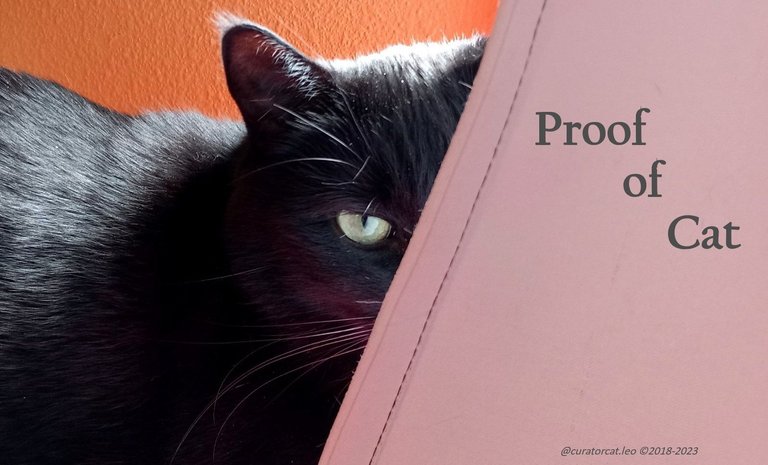Lots of excitement in the INLEO community these days, as various new features come to market and we wave goodbye to CUB Finance. Meanwhile, the eternal challenge is that of growing the community and making it viable and sustainable in the long run.
The Relentless Task of Cheerleading!
Of course, that's always a major challenge for communities. The fairly typical pattern is that things get off and running with great fanfare and enthusiasm until... well, the novelty wears off, and the community founders discover that getting from "great concept" to "long term viability" might require a lot more work, patience and persistence than originally thought.
The challenges are multi-faceted.
For one thing, you ultimately have to have more "cheerleaders" than you have "system users."
And that can be a huge challenge, with the sorts of communities we have in the Greater Hivelandia ecosystem.
Pretty much all of Hive's 2nd layer communities with a token bill themselves — with some variation — as "an opportunity to earn extra rewards."
Of course, that's a nice idea — on paper — but how does that play out, in practice?
The basic "problem" is always the same:
If you promise people they can "earn" they become part of something with the intention to earn. That's obviously not rocket science... but let's look at the deeper implication of that.
If you allow me to earn 10 tokens of some kind, when I get those 10 tokens, subsequently my primary thought is going to be turning those tokens into something I can use to buy coffee, a loaf of bread or gas for my car. The parallel line of thinking might be that when I go to work, the purpose is that I will be able to pay my rent, buy food and such. The purpose isn't just to never cash my paycheck and just allow money to build up in my employer's bank account, giving the world the illusion that the company is sitting on lots of cash.
Now, if you multiply that by a few thousand community members, you end up with FAR more people who are trying to sell... than there are buyers. It doesn't have anything to do with whether I like or support the community... it's merely an extension of the fundamental premise and promise that drew me in, in the first place.
I'm not telling you anything you don't already know, I'm just telling you something you'd rather not look at, directly.
Anyway, in order for the whole thing to not just turn into an ocean of red numbers, there has to be a truly compelling reason to buy and furthermore a broader value proposition as a compelling reason to hold the token.
And so, that's where we have to get back to there needing to be more "cheerleaders" ready to buy the token than there are "system users" wanting to always sell. Which — in essence — lands us back at @taskmaster4450's inquiry as to whether we are builders, or just users.
The "tools" available to community drivers consist primarily of finding innovative ways to "convert" mere users to cheerleaders... AND/OR always starting up and creating new "compelling reasons" for people to buy tokens, i.e. creating demand.
This is really basic economics, and it persists regardless of whether or not we're "on the blockchain" or "creating Web 3.0." No matter how pretty a package we may wrap our ideas up in, we're not exempt from the fundamental vagaries of human nature!
Which is why I've always felt that it should be mandatory for both economists and business innovators to complete at least 2-3 years of coursework in human psychology.
But that's my personal "hobby horse," so let's skip past that!
The thing about the whole "cheerleaders vs. users" equation is that it takes relatively little to upset the balance... particularly to the negative side.
All it takes is a few of the primary cheerleaders to grow tired of seemingly lackluster performance and the delicate balance slides into an almost irreversible skid down a slippery slope. You can think of the cheerleader role almost as a sort of "Brand Ambassador," and if such a person decides to "sell out" it can cast a serious shadow of doubt over the entire project.
This is where the psychology plays in, again. Communities are primarily built on relationships, and thinking that only "code" and "great concepts" and "sound tokenomics" are sufficient is a grave — and potentially very costly — mistake.
Think about INLEO, for a moment.
How many people do you think would just leave or fade away if Khal and crew didn't constantly post updates and AMAs? And always introduce new features to add value to the community? Remove those and... where do you think the sensation of "something cool is always happening!" would go? And where would the price of LEO go?
Even if there were new developments, chances are the LEO token would soon enough fade into the same "1-cent obscurity" that seems to affect 99% of all Layer 2 projects and Hive-Engine tokens.
Web 0.1...
People often try to make this whole scene more complicated than it really is, but it's actually not that different from what has been driving web communities for three decades, long before the idea of blockchain and cryptocurrency was even a thing.
The thriving communities were always those that relentlessly kept active and kept their membership interesting. And there was constant communication flowing between the "leadership" and the general participants.
The other thing that was important was not falling into the "complacency trap" by becoming too insular and self-feeding. You have to relentlessly spread the word.
In the strong communities, people were always talking about the community, outside the community. In the early days, we had no twitter or Facebook, but we linked to the communities from our personal web pages, and we shared in related communities. Because we felt good about what we were part of.
And remember, people did this with no compensation whatsoever!
The underlying psychological basis for doing so, still exists. If you're part of something you genuinely find helpful and believe in, it becomes natural to want to tell others about it. Think about your life: When you find an amazing restaurant, or have some kind of great experience, you tell your friends... just because.
The same holds true in this space. And — a such — it falls to the founders and "cheerleaders" so make sure the venue retains an energy and enthusiasm that encourages everyone to organically want to tell their friends about their experience... without having to be paid to do so.
Which can be a tall order... but it is also totally doable!
=^..^=
Curator Cat, April 9th, 2024

Posted Using InLeo Alpha







Nicely written article! You make some great points, and while I’m not really involved in LEO, I see the application to all Hive communities. Cheerleading is definitely critical to success and sustainability.
Thank you @jayna, I most got interested in the community back when it first started on the old chain, as one of the very first free-standing communities... and I was learning about the ins and outs of crypto.
It's a good example of what works, and also of how much work it is to build a viable community. Very few people have the drive to see something like this through to success.
=^..^=
Double speak is everywhere!
=^..^=
Could it be because we have two cerebral hemispheres? ;o)
Hello curatorcat.leo!
It's nice to let you know that your article will take 7th place.
Your post is among 15 Best articles voted 7 days ago by the @hive-lu | King Lucoin Curator by keithtaylor
You receive 🎖 0.6 unique LUBEST tokens as a reward. You can support Lu world and your curator, then he and you will receive 10x more of the winning token. There is a buyout offer waiting for him on the stock exchange. All you need to do is reblog Daily Report 265 with your winnings.
Buy Lu on the Hive-Engine exchange | World of Lu created by szejq
STOPor to resume write a wordSTART